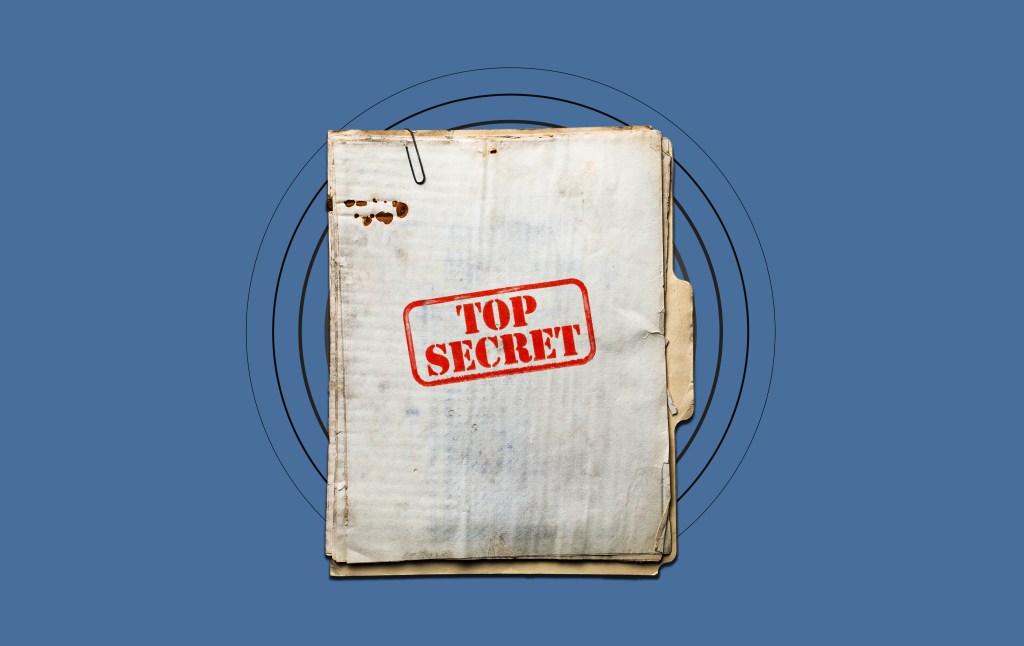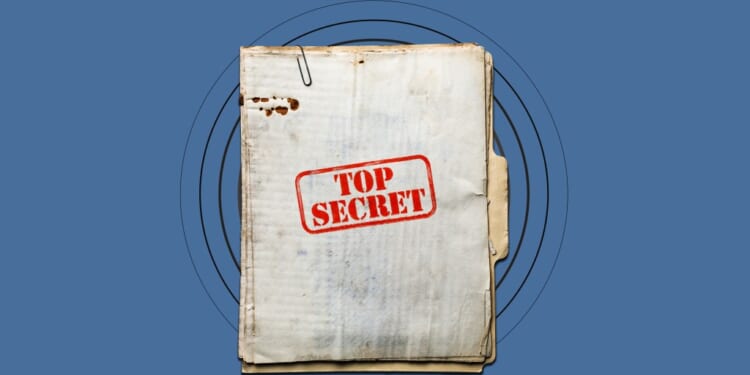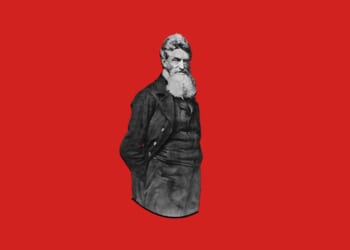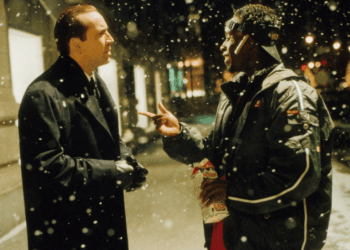
The Espionage Act of 1917 has been described as a loaded gun pointed at journalism. It is not difficult to understand why. Among other things, the statute criminalizes the unauthorized possession or communication of “national defense information,” a strikingly vague term. If journalists were routinely arrested and prosecuted for conveying such information to the public, our understanding of American foreign policy would be severely impoverished. Indeed, the practice of national security journalism would be destroyed and we would be reduced to a Soviet or Chinese Communist style flow of state-controlled information.
But the fact remains: Protecting legitimate military and foreign policy secrets is a vital national security task. Such safeguards are particularly important as our digital era gives rise to a new wave of online influencers and self-proclaimed journalists operating outside the confines of traditional legacy media. Leakers and journalists who ferret out leaks need to be deterred from disclosing to the public information that, in extreme cases, puts lives on the line. The Espionage Act does just that (though there are some significant caveats to be wary of—more on that later).
“When lives are on the line, there must be a deterrent to discourage journalists from behaving toward government secrets with extreme recklessness.”
Gabriel Schoenfeld
“By failing to distinguish between leakers and recipients, the law has a chilling effect on the practice of journalism.”
James Kirchick
The good news is that throughout its history, the Espionage Act gun has been fired at journalists only sparingly—that is, merely twice. During World War II, the Chicago Tribune published a story strongly suggesting that the U.S. had achieved victory in the Battle of Midway by breaking Japanese secret codes. This was a security breach that threatened to prolong the war, possibly by years, and cost the lives of hundreds of thousands of American servicemen. A grand jury was duly empaneled to bring charges against the newspaper and the journalists responsible, but prosecutors ultimately dropped the matter for fear of drawing attention to a story the Japanese appeared not to have noticed.
More recently, prosecutors brought Espionage Act charges against WikiLeaks proprietor Julian Assange for his online publication of a massive trove of documents provided to him by former Army intelligence officer Chelsea Manning. In 2024, Assange pleaded guilty to “conspiracy to obtain documents, writings, and notes connected with the national defense, and willfully communicate documents relating to the national defense.” Assange is a bad actor with ties to Russian intelligence. It is difficult to summon any sympathy for him. But no matter; the activity he engaged in, obtaining and communicating information related to the national defense, is what national security journalists do every day of the year. With Assange’s conviction, an unsettling precedent has been set.
But one question immediately arises from both the Chicago Tribune and Assange cases: Is the Espionage Act constitutional when applied to journalists? After all, the First Amendment states that Congress shall make no law abridging freedom of the press. But that is a thin reed on which to hang a defense. Congress and the states have enacted all sorts of laws abridging freedom of the press that have been upheld by the courts, including those punishing defamation, false advertising, and incitement to violence. Forbidding the unauthorized communication of government secrets as the Espionage Act does would seem to be yet another exception to the First Amendment. But given the paucity of cases, the matter has never been fully tested before the Supreme Court.
In the Pentagon Papers case, the matter was raised in a hypothetical manner. The central issue at stake was not Espionage Act charges but “prior restraint.” The Nixon administration sought to prevent the New York Times from publishing the massive trove of Vietnam War secrets that had been provided to the paper by former Pentagon employee Daniel Ellsberg. In its momentous decision, the Supreme Court held that the Times could not be enjoined in advance. But five of the nine justices agreed with the proposition that if a case came before them in which the Times was prosecuted after the fact for publishing government secrets, they would uphold the conviction. Reviewing the legislative history of the Espionage Act, Justice Byron White noted that Congress “appeared to have little doubt that newspapers would be subject to criminal prosecution if they insisted on publishing information of the type that Congress had itself determined should not be revealed.”
But no prosecution of the Times ensued, and the Assange case gave rise to no appeal to higher courts, so the matter has remained under a cloud of uncertainty. We can, however, hazard an educated guess. If an equivalent case were to reach the Supreme Court today, there can be little doubt that, with its conservative composition, it would uphold an Espionage Act conviction of a journalist.
Is that a bad or good thing? It depends.
As the Midway-Chicago Tribune case illustrates, there are indeed instances in which such prosecutions are warranted. When lives are on the line, there must be a deterrent to discourage journalists from behaving toward government secrets with extreme recklessness. The major newspapers purport to be responsible in their handling of such secrets, and sometimes they have indeed declined to publish newsworthy information that could jeopardize lives or vital national security secrets. But they have sometimes also skirted the line, as when the New York Times revealed in 2005 that U.S. intelligence was soaking up al-Qaeda communications and in 2006 revealed that we were tracking al-Qaeda banking transactions. These revelations may well have led the terrorist organization to tighten its communications and operational security, blinding American intelligence to the planning of future terrorist attacks.
In any event, even if the major newspapers were scrupulously responsible in every instance, the practice of journalism has exploded to include thousands if not tens of thousands of voices on the internet. Indeed, who exactly qualifies as a journalist in a world in which anyone with a Substack account can disseminate information to the entire globe with a click? The answer is anyone and everyone; we have no official certification of journalists in this country, and that is a good thing. But among the countless voices now practicing journalism are no doubt bad actors who would not shrink from revealing America’s most vital secrets should they somehow obtain them. If we are to protect necessary secrets, such individuals cannot have a get-out-of-jail-free card in the form of a journalistic exception to the Espionage Act.
The Espionage Act was designed to protect legitimate secrets. For more than a century, even as the U.S. government leaks national security secrets like a sieve, it has, as noted above, only been deployed twice against journalists (twice, that is, if we count Julian Assange as a journalist). But the drafters of the law never imagined that the United States would one day be governed by an authoritarian demagogue engaging in a fierce and concerted campaign to suppress what he calls the “enemy of the people”—the American press.
Considering the Trump administration’s other lawless attacks on the press—blocking media outlets from access, filing lawsuits against news organizations, threatening adverse antitrust decisions, imposing draconian rules on Pentagon reporters, threatening to strip television stations of their broadcast licenses, ceaseless rhetorical assaults on journalists and news organizations—it is actually surprising that the administration has not yet employed the Espionage Act weapon in response to one or another national security leak. But that may only be a question of time.
As I noted at the outset, safeguarding sensitive national security secrets is a critically important national security imperative. But under a president who is violating the law, including lately by launching illegal attacks on alleged drug smugglers, maintaining a flow of national security leaks is a competing imperative. It is an irony that it is leakers—and the journalists who report their leaks—who are working to keep us free and within the bounds of the Constitution.
In an era in which free and open media are under relentless assault, prosecutions of journalists under the act’s strictures could pose one of the most dangerous threats to freedom of the press in the history of the United States. But that doesn’t make safeguards against the irresponsible dissemination of state secrets any less necessary.

















